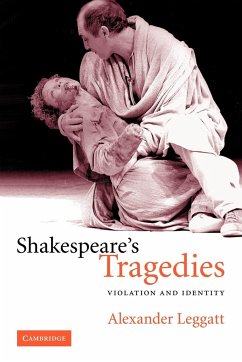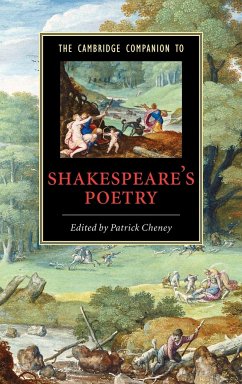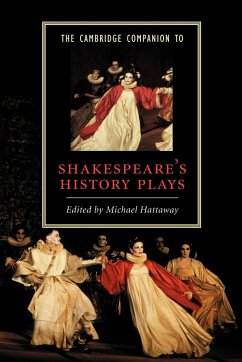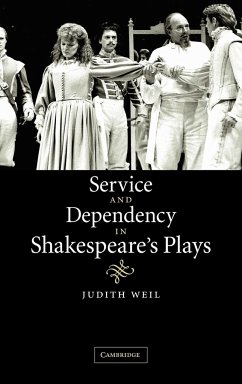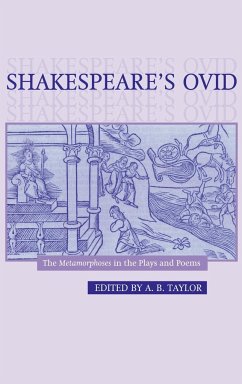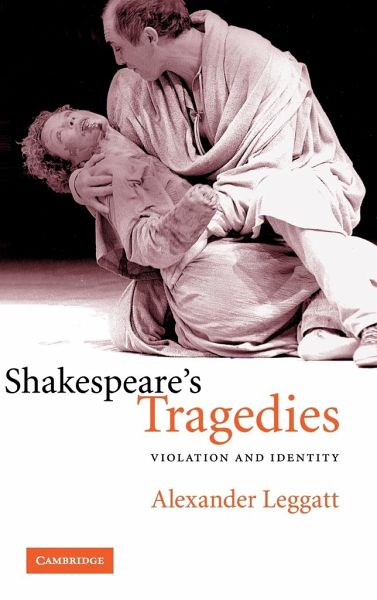
Shakespeare's Tragedies
Versandkostenfrei!
Versandfertig in 1-2 Wochen
104,99 €
inkl. MwSt.
Weitere Ausgaben:

PAYBACK Punkte
52 °P sammeln!
Shakespeare's Tragedies: Violation and Identity traces the linked themes of violation and identity through seven Shakespearean tragedies, beginning with the rape of Lavinia in Titus Andronicus. The implications of this event - its physical and moral shock, the way it puts Lavinia's identity, and the whole notion of identity, into crisis - reverberate through Shakespeare's later tragedies. Through close, theatrically informed readings of Titus Andronicus, Romeo and Juliet, Hamlet, Troilus and Cressida, Othello, King Lear and Macbeth the book traces the way acts of violence provoke questions abo...
Shakespeare's Tragedies: Violation and Identity traces the linked themes of violation and identity through seven Shakespearean tragedies, beginning with the rape of Lavinia in Titus Andronicus. The implications of this event - its physical and moral shock, the way it puts Lavinia's identity, and the whole notion of identity, into crisis - reverberate through Shakespeare's later tragedies. Through close, theatrically informed readings of Titus Andronicus, Romeo and Juliet, Hamlet, Troilus and Cressida, Othello, King Lear and Macbeth the book traces the way acts of violence provoke questions about the identities of the victims, the perpetrators, and the acts themselves. It shows that violation can be involved in the most innocent-looking acts, that words can be weapons, that interpretation itself can be a form of damage. Written in a clear, accessible style, this study provokes questions about the human implications of Shakespearean tragedy.





